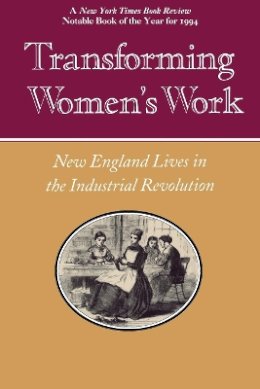
Transforming Women´s Work: New England Lives in the Industrial Revolution
Thomas Dublin
"I am not living upon my friends or doing housework for my board but am a factory girl," asserted Anna Mason in the early 1850s. Although many young women who worked in the textile mills found that the industrial revolution brought greater independence to their lives, most working women in nineteenth-century New England did not, according to Thomas Dublin. Sketching engaging portraits of women's experience in cottage industries, factories, domestic service, and village schools, Dublin demonstrates that the autonomy of working women actually diminished as growing numbers lived with their families and contributed their earnings to the household.
From diaries, ... Read more
He first examines the case of rural women engaged in the cottage industries of weaving and palm-leaf hatmaking between 1820 and 1850. Next, he compares the employment experiences of women in the textile mills of Lowell and the shoe factories of Lynn. Following a discussion of Boston working women in the middle decades of the century-particularly domestic servants and garment workers-Dublin turns his attention to the lives of women teachers in three New Hampshire towns.
Show LessProduct Details
About Thomas Dublin
Reviews for Transforming Women´s Work: New England Lives in the Industrial Revolution
New York Times Book Review
No historian has done ... Read more
